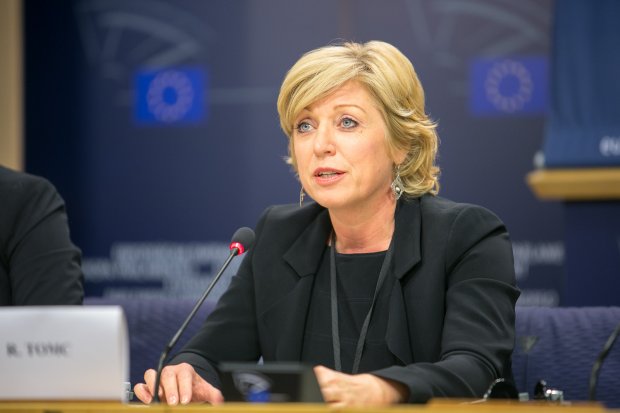“It is really great that today’s meeting of Sophie in’t Veld’s group was publicly broadcast. That was not how it was intended at first. But since it was publicly broadcast, it was not possible to hide the complete ignorance of the European bureaucrats about what was happening in Slovenia. They really have no idea,” said MEP Romana Tomc, in regard to Friday’s debate on the state of the media in Slovenia.
According to Romana Tomc, members of the European Parliament who are also members of the Democracy, Rule of Law and Fundamental Rights Monitoring Group, which operates within the Parliamentary Committee on Civil Liberties, Justice and Home Affairs (LIBE), asked questions that they had previously written down (which were forwarded to them by people from Slovenia), but they did not really understand them very well. “Their ignorance even went as far as to accuse the government of using public media outlets for its own propaganda.”
The fear of losing the monopoly in the fourth branch of government is obvious
“The guests, Goran Forbici, Petra Lesjak Tušek, Lenarta J. Kučić, Marko Milosavljević, did not disappoint. Cheerful and misleading, in the style of – media freedom is threatened, journalists are being attacked, Hungarians will destroy us,” Tomc said, adding that the fear of losing the monopoly in the fourth branch of government is obvious. “More than anything, they are afraid of Nova24TV.”
There was a lot of talk about tweeting and even about the “attack” on Ana Roš. “And this is supposed to be a serious debate in the European Parliament on the state of the rule of law and the threat to media freedom in Slovenia?” Tomc was critical while also emphasising that this is exactly why a serious analysis and a visit of all of the EU institutions in Slovenia needs to happen so that they will no longer live in a parallel universe.
In a virtual conversation with the journalists, organised by the European Parliament’s office in Slovenia before the upcoming plenary session, Tomc emphasised the following: “Of course we also have problems in Slovenia, both with the media and with the rule of law, we can all agree on this. However, we do not agree with the idea that this should be discussed behind closed doors among a small group of participants. Therefore, instead of discussions being held behind closed doors, instead of reports on Slovenia being written by people who have never even visited Slovenia, the Prime Minister invited a working group to Slovenia to investigate the situation comprehensively and in detail.”
According to Tomc, the story of Slovenia needs to be viewed as a whole. “Only then can we assess the situation objectively.” The story began on the first day of the government of Janez Janša. When the Constitutional Arch Coalition failed to bring down the government with the vote of no confidence, they decided to move the whole affair to the European floor. “Europe’s left-wing political pole is actively attacking the right-wing governments across Europe. With the help of connections on the European floor, they have managed to move the domestic political debate to the European level. However – Europe is not dealing with this topic as in-depth as the Slovenian media are trying to make it seem. This is not a central theme of the European Union. Europe has more important issues on its agenda.”
Sara Kovač


